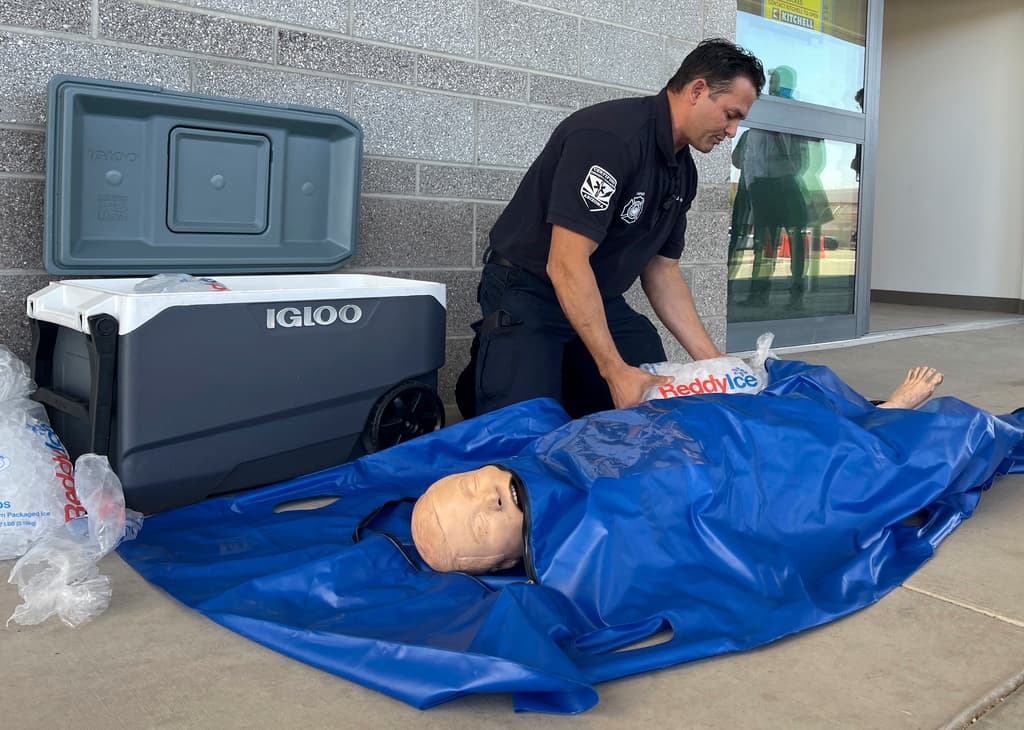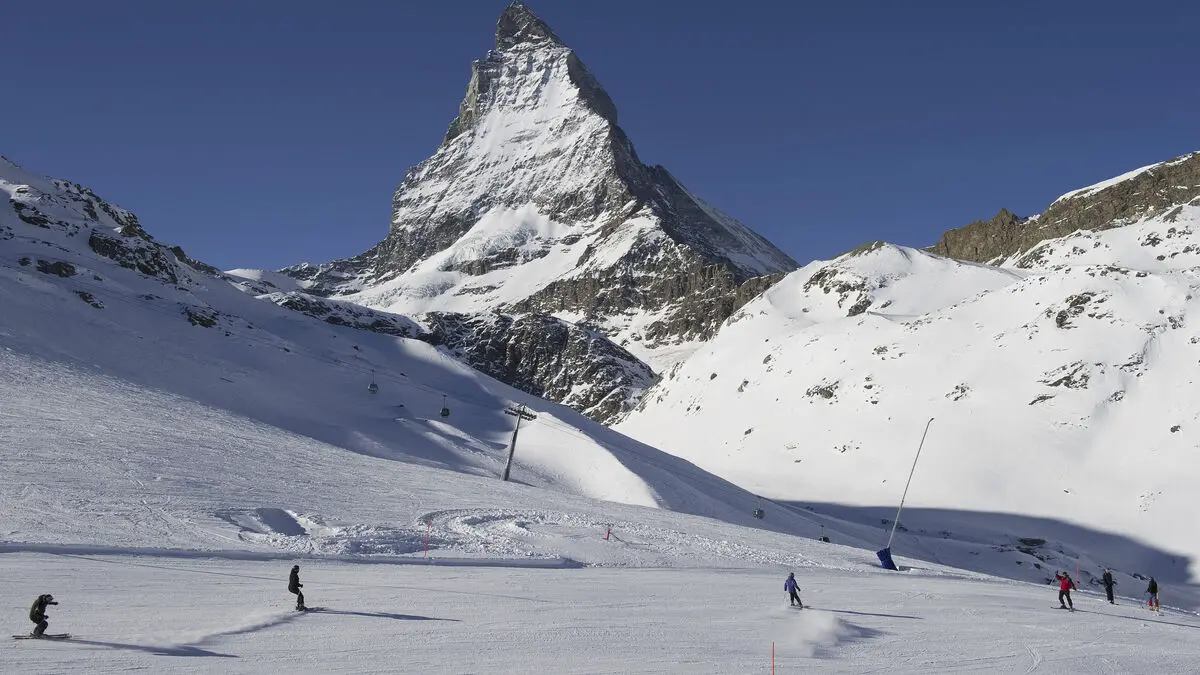The USA's hottest city is sweltering in the heat. A new method for saving lives is to place overheated people in large bags filled with ice cubes and water.
Tens of millions of people are affected by heat warnings since high temperatures have descended upon parts of the USA. Last year, the country experienced the largest number of heatwaves recorded since 1936, and now authorities are urging people to exercise caution.
In recent years, the heat has been particularly deadly in the USA's hottest major city: Phoenix, located in Arizona's desert. Last year, 645 deaths were linked to the heat, a record. On Saturday, the thermometer reached 44.4 degrees, and the first two weeks of June this year were the hottest ever recorded for the period.
Opening cooling centres
Residents are being urged to stay indoors during the hottest hours of the day, drink plenty of water, and wear light and airy clothing. Over a hundred special centres have been opened where people can come to cool down, including two where they can stay overnight.
In Phoenix, fire engines and ambulances have now been equipped with bags that can be filled with ice cubes and water to rapidly cool down heat victims. The idea is to place overheated individuals in the bags before transporting them to hospital.
The technique can lower body temperature in just a few minutes, according to the rescue services.
Sometimes the ice has melted completely by the time they arrive at the hospital because the patient is so hot, says Todd Keller from the Phoenix fire brigade, to The New York Times.
Cooling soldiers
The method has been used for several years to cool down overheated soldiers or athletes who have suffered heatstroke, for example, during marathon races. Last summer, Phoenix set a record with 31 consecutive days with a temperature of 43.3 degrees or higher.
In such heat, it can quickly become overheated, especially for the groups that are particularly vulnerable.
2023 was the hottest year ever recorded on Earth. Heatwaves are expected to become longer, more intense, and more frequent due to climate change.






